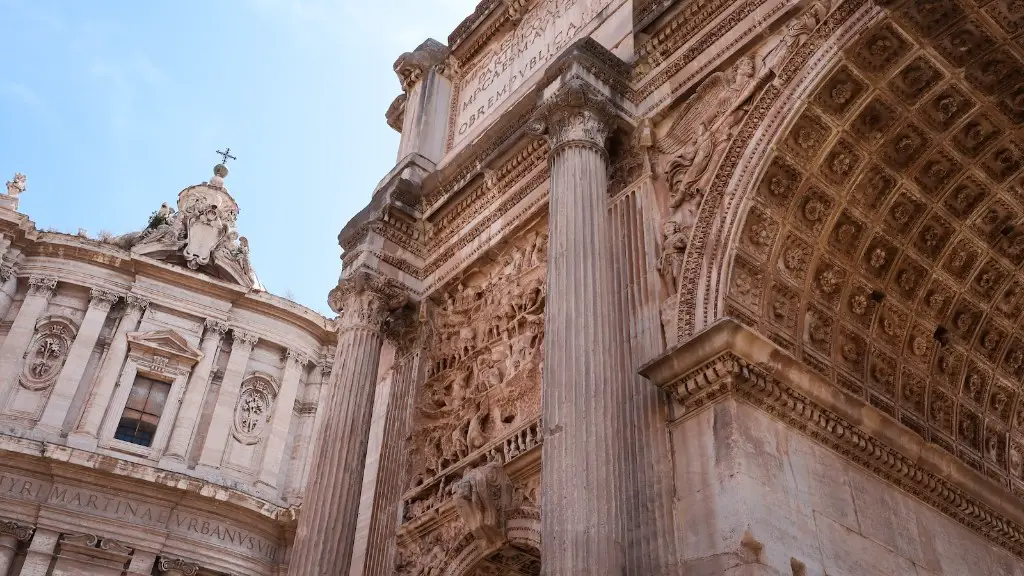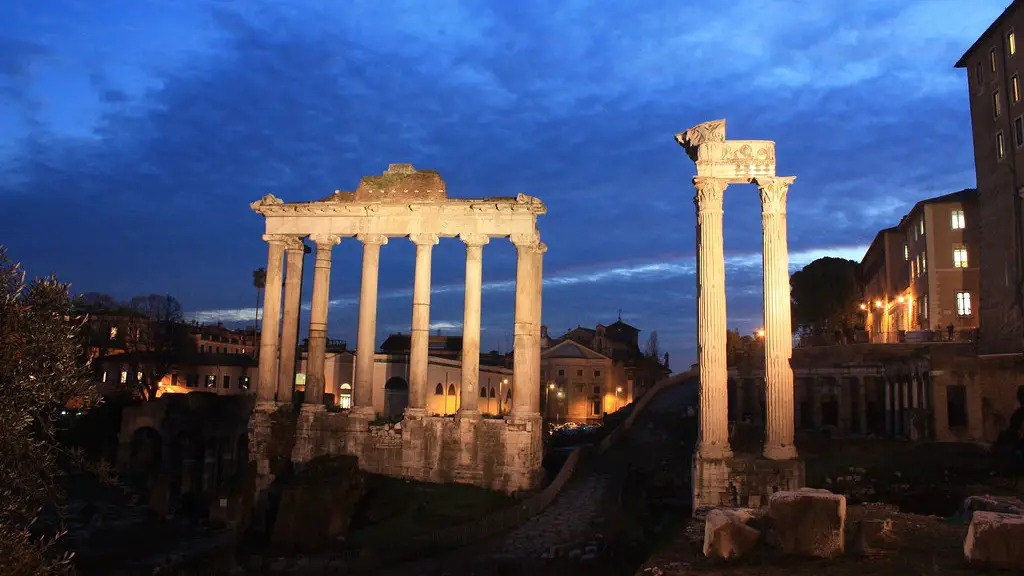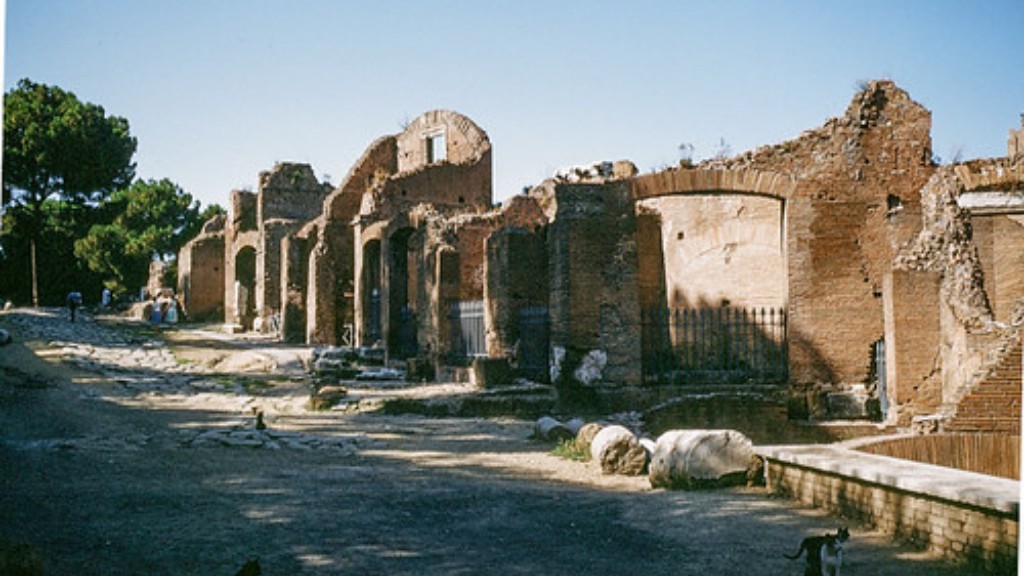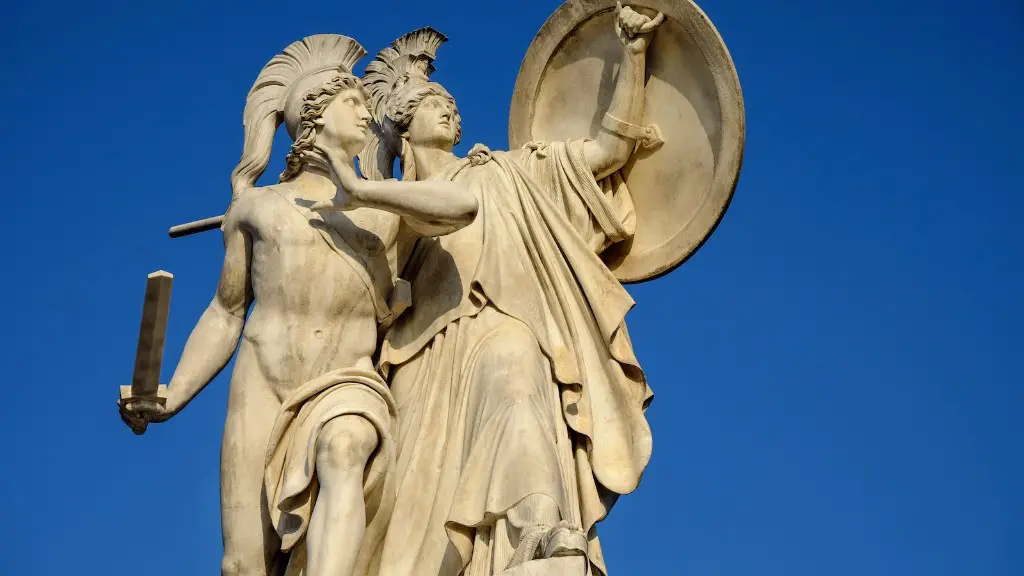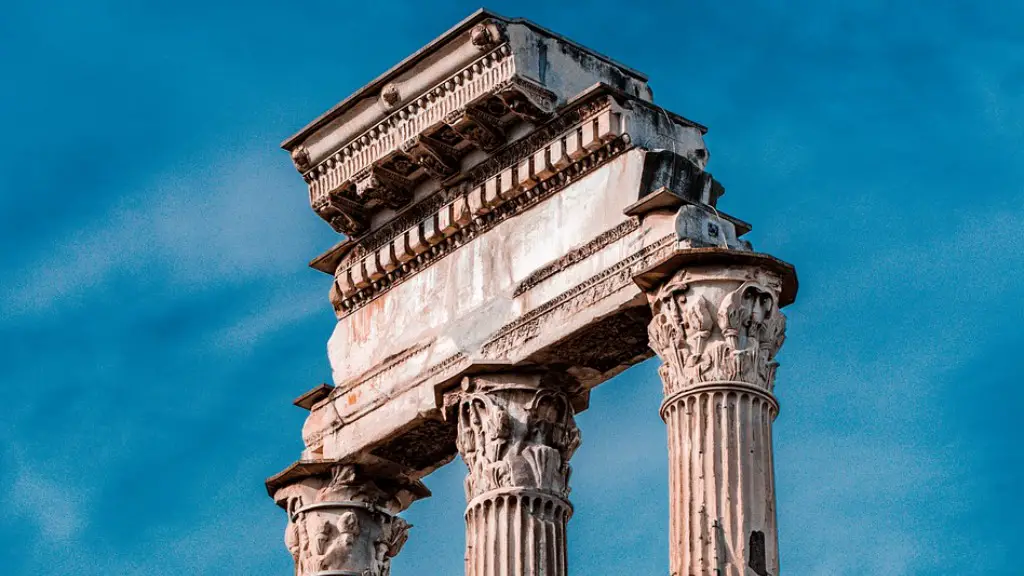Many people think of ancient Greece and ancient Rome as two completely different cultures. However, there are actually quite a few similarities between the two. Both Greece and Rome were located in southern Europe, and both cultures heavily relied on maritime trade. In terms of government, both countries were initially ruled by monarchs but eventually transitioned to republics. And, of course, both cultures have left a significant mark on the world.
There are many things that ancient Greece and ancient Rome have in common. They are both Mediterranean countries with similar climates. They both have a history of democracy and a strong sense of law and order. Ancient Greece is the birthplace of western civilization, while ancient Rome is its great success story. Many of the same foods, art styles, and even gods are shared between the two cultures.
Is Ancient Rome and Ancient Greece the same?
The period of Classical Antiquity saw the rise of some of the most impressive civilizations in history. Ancient Greece and Rome dominated the Mediterranean region for centuries, leaving a lasting legacy in the form of art, architecture, literature, and philosophy. Even today, the influence of Classical Antiquity can be seen all around us.
The Ancient Greeks were one of the most influential cultures of the Ancient world. They shaped the social structure, religion and military strength of Ancient Rome. The Ancient Greeks’ renowned use of democracy influenced Ancient Rome’s government structure. The strong belief in Gods and oracles in Ancient Greek shaped the religion of Ancient Romans.
How are Greece and Rome the same
It is no surprise that the Greek and Roman civilizations had many similarities due to their geographical proximity. Both cultures placed a high value on family, community, and religion, and these values are reflected in their art, literature, and architecture. Although there are many similarities between these two great civilizations, there are also some significant differences, such as their political systems and their views on slavery.
The desire for works of art that evoke Greek culture among educated and wealthy Romans has led to the creation of marble and bronze copies of famous Greek statues by Greek and Roman artists. These copies not only satisfy the demand of the Romans, but also help to preserve the Greek culture and art.
Why did Rome and Greece have the same gods?
Although Greek Gods are more popular, there are many similarities between Greek and Roman mythology. Often, the same Gods are present in both cultures, but with different names and different traits. For example, Cupid is the Roman god of love, while Eros is the Greek god of love. This is likely because the Romans borrowed many of their Gods from the Greeks.
The ancient Greeks and Romans had polytheistic religions with many gods. However, their religions were focused on a finite group of deities who were worshipped through prayer, animal sacrifice, and festivals. This focus on a smaller group of deities meant that the ancient Greeks and Romans had a more unified religious culture than other polytheistic cultures.
Which Greek and Roman gods are the same?
Do Greek and Roman gods have the same name?
Because of the close cultural contact between the Greeks and Romans from early on in their histories, the Romans adopted not only the stories and myths of the Greeks, but also their gods. … Many of the gods that the Romans adopted, however, already had names that were very similar to their Greek counterparts.
Who is Pluto?
Pluto was the Roman equivalent of Hades, the Greek god of the underworld. He was also the god of wealth, because diamonds and other precious stones were found underground. Like Hades, Pluto was a shadowy figure.
Who was the most feared God?
PhobosPhobos (mythology)PhobosPersonification of fearPossibly Phobos and Ares in Ares’s Roman temple in Mars Hill, AthensAretologyAttributesWeaponBident3 more rows
The Roman civilization heavily adopted from the Greeks; one of the most prominent aspects being their religion. The Romans adopted and renamed many of the Hellenic gods, and kept the surrounding myths alive. In addition to this, they also took on Greek architectural and artistic styles. Consequently, the Greeks had a large impact on Roman society, culture, and religion.
Did Rome copy Greek gods
Roman mythology is heavily influenced by Greek mythology. This is evident from the early days of Rome’s history all the way through the Hellenistic period when Greece was heavily influential. Roman authors would imitate Greek literary models, which led to the Roman gods being very similar to the Greek gods.
One way to keep track of the differences between the Greek and Roman gods and goddesses is to create a chart with the names and their corresponding pantheon. For example, on one side you could have a column with the names of the Greek gods and goddesses, and on the other side have the Roman names for those same deities. This way, you can easily see the different names for each god or goddess, and also see which ones share the same name.
How are Greek and Roman mythology so similar?
Roman mythology is heavily influenced by Greek mythology. Many of the Roman gods and goddesses are either directly borrowed from the Greeks or are based on Greek prototypes. Even the Roman names for these deities are often derived from the Greek versions. For example, the Roman goddess Minerva is based on the Greek goddess Athena. Contact with Greek culture was ever-present in Italy due to theEarly influence of Greece on the Italian peninsula, and this is likely what led to the Roman adoption of Greek mythology.
Though both Roman and Greek education systems focused primarily on educating boys from wealthy and elite families, poor boys were still able to find jobs while girls were taught to read and write at home and trained in household chores so that they could be good wives. Girls were not given the same opportunities as boys when it came to education, but this did not mean that they were not intelligent or capable.
How was Greek and Roman philosophy similar
ately, the word philosophy is of Greek origin, combining the words philia or “to love” with sophia or “wisdom”. Greek and Roman religion was polytheistic; ancient Greeks and Romans worshipped many gods and goddesses. Devout members of both groups believed that there were gods who influenced all natural phenomena.
Although Thor is a Norse god, he has a Greek equivalent in Zeus. Zeus is the ruler of the gods in Greek mythology and is often associated with thunder and lightening, just as Thor is. Zeus is also a powerful god who is often revered and worshipped by humans.
Is Cupid Greek or Roman?
Cupid was the ancient Roman god of love and desire, who was often depicted as a young man carrying a bow and arrows. His Greek counterpart was Eros, the god of love and desire. In ancient Greece, Eros was often seen as the son of Ares, the god of war, and Aphrodite, the goddess of beauty, as well as sex and desire. The Romans’ Cupid was the equivalent of the Greek god Eros, and the origin of the word “erotic”.
Greek mythology is a collection of stories and beliefs that were held by the ancient Greeks. These stories were passed down orally for generations before being written down, and they often revolve around the Greek gods and heroes. Roman mythology, on the other hand, is a collection of stories and beliefs that were held by the ancient Romans. Like Greek mythology, these stories were passed down orally for generations before being written down, but they focus on the Roman gods and heroes. One of the most popular stories from Roman mythology is the story of Aeneas, a brave soldier who travelled to Italy after the Greek-Asian war and created a new mythology.
Final Words
There are many things that ancient Greece and Rome have in common. Both cultures were very influential in the development of Western civilization. Both cultures had a strong focus on the arts, literature, and philosophy. Both cultures also had a strong military tradition.
There are many things that ancient Greece and ancient Rome have in common including their love of gods and goddesses, grandiose temples, and magnificent art. Yet, what may be most important is that the two cultures shared the same view of the world and of human nature. This commonality is what made it possible for the two cultures to share so much and to have such a lasting impact on the world.
